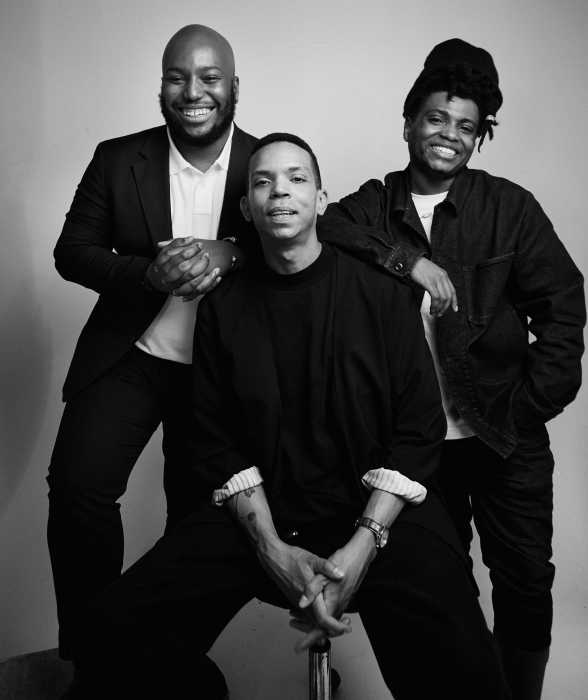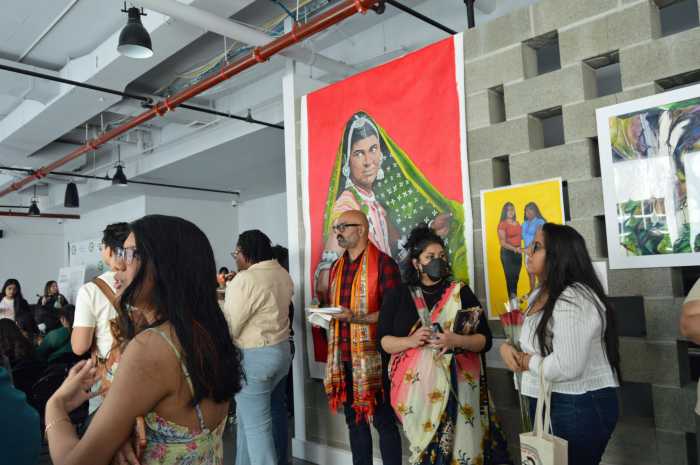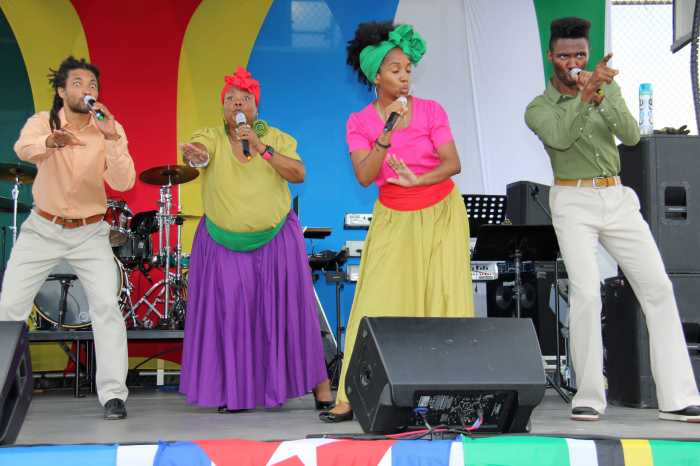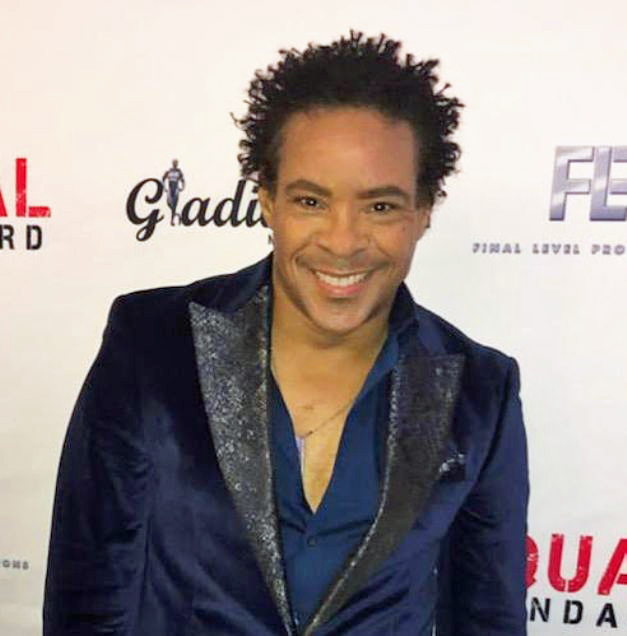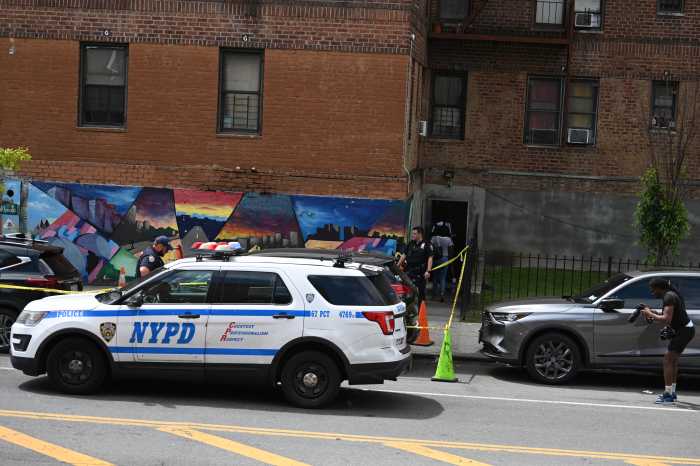Depending on the prism an individual looks through to define Harry Belafonte, any number of definitions could apply to his legacy and storied creative and humanitarian career.
A Hollywood movie star, three-time Grammy award winning singer, television’s Emmy Award winner, theater’s Tony prestigious honoree, philanthropist, World War II veteran who volunteered tofight with the U.S. Navy, the fact he was tall, dark and handsome and child of the Caribbean only begins to describe the Harlem-born achiever who consistently aims higher and in the process maintains dignity and admiration from a grateful population most.
Acclaimed the first international King of Calypso, Belafonte’s trove runs the gamut encompassing a wide array of achievements.
Harry was born Harold George Bellanfanti, Jr. March 1, 1927 at Lying-in Hospital in Harlem. His mother Melvine was born in Jamaica, the child of a white, Scottish mother.
His father Harold George Bellanfanti, Sr., was also born in Jamaica, the child of a Black mother and Dutch Jewish father.
From 1932 to 1940, he lived with his grandmother in Jamaica.
After returning to Harlem, he attended public schools eventually graduating from George Washington High School.
Like many of his peers, afterwards he enlisted in the U.S. navy during the war.
He often attributes his political beliefs to the example set by his mentor Paul Robeson, a singer, actor and political advocate.
Reportedly, Robeson opposed not only racial prejudice in the United States, but also western colonialism in Africa.
Among some of the statements Robeson made that resonated with Belafonte is that: “Artists are the gate-keepers of truth.”
Perhaps that telling statement inscribed a sense of purpose then after his stint in the military working as a janitor’s assistant. He had secured the position in order to be near creative talents that rehearsed in a Harlem building.
He was admired by some of the actors, musicians and singers there and through the generosity of one of them was rewarded with tickets to attend a performance by the American Negro Theater.
Impressed by the showcase of the all-Black performers, Belafonte decided then and there his life’s path would be acting, performing and being among the creative artists associated with theater.
It was there that Belafonte met Sidney Poitier, another son of the Caribbean.
Together with the Cat Island, Bahamian, Belafonte honed a career while sharing the passion of singing and acting. At the same venue they met Tony Curtis, Marlon Brando, Bea Arthur, Walter Matthau and a long list of talented artists.
Eventually, Belafonte started his career in music as a club singer. That initiative he said was to fund his way through acting classes.
The first time he appeared in front of an audience, he was backed by the Charlie Parker band, which included Charlie Parker, Max Roach and jazz trumpeter Mikes Davis.
His upward spiral as a performer has been well documented and punctuated by the numerous awards he has received.
Among the films he has starred are: Otto Preminger’s hit musical “Carmen Jones” (1954) “Islands in the Sun” (1957) and Robert Wise’s “Odds Against Tomorrow (1959).
In the early 1970s Belafonte appeared in more films among which are two with Poitier:”Buck & The Preacher” (1972) and “Uptown Saturday Night” (1974).
Ten years later, Belafonte produced and scored the musical film “Beat Street” one of the premiere films to deal with the rise of hip-hop culture. After a hiatus during the 80s, in 1995, Belafonte appeared with John Travolta, starring in “White Man’s Burden” a major film addressing race.
Simultaneous to his singing and acting career, he was dubbed the “King of Calypso.”
Crowned by an international record buying audience, he was bestowed with the royal title for popularizing the Caribbean musical style and for introducing it to an international audience in the 1950s. Although he half-heartedly embraced the title because he said he was never voted with Trinidad &Tobago’s calypso monarch contestants who vie for the coronation in the twin island, from Europe to the Americas, he was the undisputed ruler of the genre.
One of the reasons was that his breakthrough album “Calypso” in 1956 emerged the first million selling album by a single artist.
It was also the first million-selling album ever in England.
The album lasted 58 weeks in the top 10 and 99 weeks on the U.S. charts.
Even now, the album is listed number four on Billboard’s all-time “Top 100 Album” chart for having spent 31 weeks at number one.
That trailblazing accomplishment spawned future tabulation of record sales and also launched the annual Grammy Awards which has since rewarded excellence and top music recorders in the music industry.
On the release he sang the “Banana Boat Song,” an infectious tune more popularly known as “Day-O.”
The first widely-released single became his “signature” song and decades later in 1997 became the wake-up call for the astronauts on the Space Shuttle Atlantis in outer space.
His other smash hit was “Jump In The Line.”
Other tracks included “Jamaica Farewell,” which gave songwriting credit to Bedford-Stuyvesant, Brooklyn-born Irving Burgie who wrote eight of the 11 songs on the album.
Along with Nat King Cole, Belafonte won wide acclaim appearing on television singing “Mamma Look A Boo-Boo,” a song originally recorded by Lord Melody in 1956.
During his live performances, audiences often echoed the lyrics —endorsing his rendition of “Mathilda,” a song he recorded April 27, 1953.
Belafonte is acknowledged as the first African American to win an Emmy.
He claimed television’s highest honors in 1959 for “Revlon Revue: Tonight with Belafonte.”
Belafonte was one of many entertainers recruited by singer Frank Sinatra to perform at the inaugural gala of President John F. Kennedy in 1961.
That same year he released his second calypso album, “Jump Up Calypso” which went on to become another million seller.
He has recorded in many genres, including blues, folk, gospel, Broadway show tunes and American standards.
Perhaps equally documented is his affinity for immersing himself into socially conscious causes.
During the 1960s he introduced several artists to American audiences, most notably South African singer Miriam Makeba and Greek singer Nana Moskouri.
Belafonte’s album “Midnight Special” in 1962 featured the first-ever record appearance by a young harmonica player and now legend, Bob Dylan.
In 1988, he released his first album of original material in more than a decade, “Paradise in Gazankulu.”
The album contains 10 protest songs against the racist, apartheid policy in South African.
Belafonte’s relentless agitation against the racist regime did not go unnoticed. And when Nelson Mandela was freed, the African National Congress named Belafonte to coordinate all logistics for a visit by the freedom-fighter to the United States.
Since that time, Belafonte has not released another studio album.
Belafonte was awarded the National Medal of Arts in 1994 and in 2000 won a Grammy Lifetime Achievement Award.
From Feb. 5 to 9, 1968, Belafonte guest-hosted the popular nighttime TV talk show, “The Tonight Show” substituting for Johnny Carson. Among his interview guests during that week were Dr. Martin Luther King Jr and Sen. Robert F. Kennedy.
Some might consider Belafonte one of the most devout Civil Rights activist in the entertainment industry. That definition would be appropriate because in the 1950s and ‘60s he was one of Dr. Martin Luther King Jr’s most devoted confidants.
He provided for King’s family, when King’s earning as a preacher only amounted to $8,000 per year.
Like many other civil rights activists, Belafonte was blacklisted during the McCarthy era. During the 1963 Birmingham Campaign he posted bail for Dr. King to get him out of Birmingham City Jail. He raised thousands of dollars to release other civil rights protesters. Belafonte also financed the 1961 Freedom Rides.
During the “Mississippi Freedom Summer” of 1964 Belafonte bankrolled the Student Nonviolent Coordinating Committee (SNCC). That August along with Sidney Poitier took $60,000 in cash to help the cause and during a rally entertained crowds in Greenwood.
He supported voter registration drives to increase Black voter participation. And significantly he also helped to organize the 1963March to Washington.
Belafonte has been a longtime critic of U.S. foreign policy. While his stance on US tolerance of apartheid in South Africa was always publicized, he also candidly voiced dissent against the U.S. embargo against Cuba. He regularly praised President Fidel Castro and criticized America for the invasion of Grenada.
He has visited Cuba on many occasions and is credited with ensuring hip-hop’s place in Cuban society.
According to Geoffrey Baker’s article: “Hip-hop, Revolucion! Nationalizing Rap in Cuba,” on a 1999 visit Belafonte met with representatives of the rap community immediately before meeting with Fidel Castro.”
The meeting, he said, resulted in “Castro’s personal approval of, and hence the government’s involvement in the incorporation of rap into his country’s culture.”
A decade ago, Belafonte led a delegation of activists including actor Danny Glover and activist / professor Prof. Cornel West to meet with Venezuela’s President Hugo Chavez. A year previous to that visit, Chávez — an outspoken critic of President George W. Bush — initiated a program to provide cheaper heating oil for poor people in several areas of the United States. Belafonte supported this initiative.
He was quoted as saying, during the meeting with Chávez, “No matter what the greatest tyrant in the world, the greatest terrorist in the world, George W. Bush says, we’re here to tell you: Not hundreds, not thousands, but millions of the American people support your revolution.”
The comment ignited a great deal of controversy.
Belafonte’s success did not protect him from criticism of his communist sympathies or from racial discrimination. In the south he was maligned and considered persona non grata.
He refused to perform there from 1954 until 1961.
In 1960 he appeared in a campaign commercial for Democratic presidential candidate John F. Kennedy.
After his election, the president named Belafonte cultural advisor to the Peace Corps.
Earlier this year, Belafonte endorsed Sen. Bernie Sanders for the Democratic presidential candidate, saying, “I think he represents opportunity, I think he represents a moral imperative, I think he represents a certain truth that’s not often evidenced in the course of politics.”


